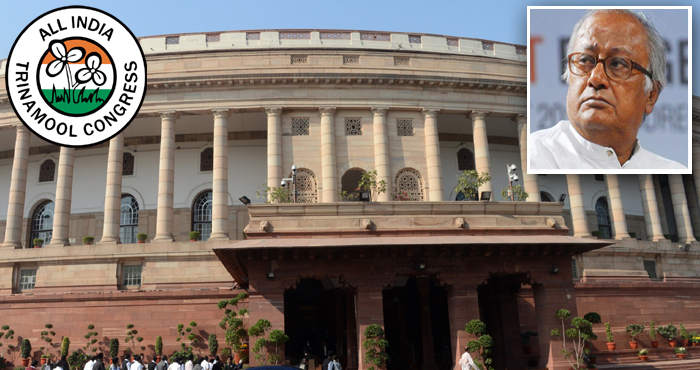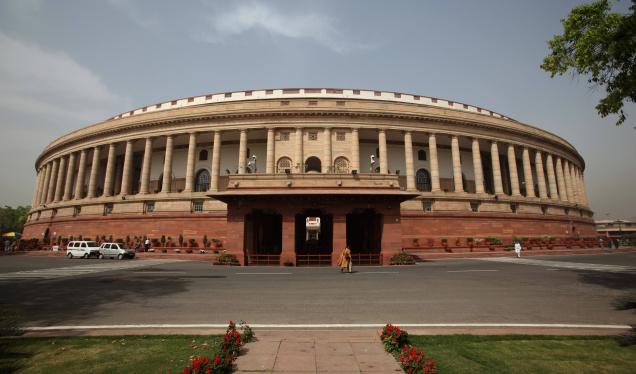FULL TRANSCRIPT
Madam we are discussing on a Motion under 193 brought by Anurag Thakur on Sustainable Development Goals health and welfare for all. Before I begin, I must thank the honorable Speaker that she has been perusing this issue of Sustainable Development Goals with persistence. Not only in Delhi, she had a Commonwealth Women MPs’ meeting at Jaipur in August 2016, where this was highlighted. Then again in Indore she had an Asian Speakers’ Summit this year where she highlighted the Sustainable Development Goals. So, here through the intervention of the Speaker we have made progress.
Madam, you know this issue of Sustainable Development Goal came up during the Presidency of Gro Harlem Brundtland, the Norwegian Prime Minister who provided the definition of Sustainable Development that was used for the next 25 years. This was in 1925.
This intergenerational concept of Sustainable Development was adopted at the 1992 UN Conference on Environment and Development at Rio in 1992. The definition of Sustainable Development has evolved to capture a more holistic approach linking the three dimensions of sustainable development, economic development, social inclusion and environmental sustainability (as per vision of Sustainable Development was emphasised at 2012 Rio+20 Conference).
Madam, I need not go into the details of what are the 17 goals of Sustainable Development. They are – no poverty, zero hunger, good health and well-being, quality education, gender equality, clean water and sanitation, affordable and clean energy, decent work in economic growth, industry and infrastructure, etc.
You will notice that all these 17 goals are interlinked. For instance good health and well being is linked to clean water and sanitation. Even gender equality is linked to this; unless women get equal attention in health matters, how will maternal health improve? And all this is linked again to economic growth.
So, the point is to have a holistic view, on the whole matter and that is why it is necessary to discuss the goals at length. Let us see about how progress has been made in this matter. In child health, throughout the world 17,000 fewer children die each day than in 1990 but more than 6 million children die before their fifth birthday every year. Maternal mortality has fallen by almost 50 percent since 1990 but in Eastern Asia, North Africa and Southern Asia maternal mortality has declined by about two thirds. But proportion of mothers who do not survive child birth compared to those who do is still fourteen times higher in underdeveloped regions than in developed regions.
One only half of women, we are talking about gender equality, only half of women in developing regions receive the recommended amount health care. Lastly, maternity maternal mortality rate – MMR – from 437 per lakh live births in 1991 came down to 167 in 2009. In 2009, 72 percent deliveries were institutional so there has been a big progress.
The next the big challenge towards health is HIV AIDS. By 2014,there were 13.6 million people accessing antiretroviral therapy, an increase from 8 lakh in 2003. India has made significant tide in reducing the prevalence of HIV and AIDS across various highest categories. Adult prevalence has come down from 0.45 percent to 0.27 percent in 2011. We have made progress in bringing down the number of those affected by HIV AIDS. Madam, the newer HIV infections in 2013 were estimated at 2.1 million which was 38 percent lower than in 2001. So newer cases are also coming down with antiretroviral therapy and at the end of 2013, two lakh forty thousand children in India were infected with HIV through their parents.
Having said that, let us judge, what are the big goals for 2030 for India?
- By 2030, for India and the World.
- By 2030, reduce Global Maternal Mortality Rate to less than 70 per lakh childbirth.
- By 2030, end preventable deaths of newborn children under five years of age.
- By 2030, end the epidemics of AIDS, tuberculosis, malaria and neglected tropical diseases and combat hepatitis, water-borne diseases etc.
- By 2030, reduce one-third premature mortalities from non communicable diseases.
- By 2030, strengthen the prevention and treatment of substance abuse including narcotic drug abuse and alcohol.
- By 2030, that is upto which our Sustainable Development Goal is, ensure universal access to sexual and reproductive health care service, including for family planning information and education.
- By 2030, achieve universal health coverage including financial risk process protection.
- By 2030, strengthen the implementation of World Health Organisation Framework Convention on tobacco control in all countries,
- By 2030, support the research & development of vaccines and medicines for the communicable and noncommunicable diseases,
- By 2030, substantially increase health financing. Send then the capacity of all countries in particular developing countries for early warning, risk reduction and management of national and global health risks.
Madam, I have more or less tabulated, formulated the big problems today.
Health care is not about doctors only. I know Madam, you are a reputed pediatrician yourself, and a dedicated person who still does a lot of pro-bono work for poor children; we admire you for that. But, as has been stated earlier, doctors are considered demi-gods by the patients and their relatives. But, they do not act as demi-gods.
In India, as specially in my State of West Bengal, 90% of the people are still dependent on government hospitals and public health care. The big hospitals and nursing homes have all come up in big cities, and they are money-minting machines. They are not giving people treatment; they are sucking money out of the system. Madam, you know that in West Bengal the situation became so bad; there were several attacks on hospitals after patients died and huge bills were imposed on them. Our West Bengal Government enacted a Clinical Establishment Act in which there is a proposal to set up a commission to go into the bills raised by the hospitals.
I think it is very essential for the Government that some control be brought on them. Madam, I feel there should be some standard practices prescribed – in which condition what investigations can be done, whether a patient should be sent into ventilator or ICU, and a standard protocol should be devised to control them. Madam, you know in this House we have discussed how the Government should control the price of stents, which, when costing Rs 40,000, the amount charged is Rs 1.5 lakh to Rs 2 lakh. The Government has taken some steps to control that.
You know about the price of drugs: because of WTO regulations, the prices of drugs have gone up very much. We are paying the price for patented foreign drugs, which are abnormally costly. The Government has a drug price control order. I want it to be implemented strictly so that prices of drugs, especially those manufactured by multinationals, are suitably brought down. There has been an effort by the Government to bring down drug prices and I appreciate that.
Madam, you are from West Bengal and are aware of the efforts West Bengal Government has done in the field of medical treatment. More than 100 fair price medicine shops have been opened in West Bengal, where generic medicines are being distributed with up to 70% discount. Madam, you also know that in West Bengal, in the government hospitals all treatment including cardiac surgeries.
Here in this house, while perusing sustainable development goals, let me condemn all attacks on doctors anywhere. Doctors are human beings. I do not believe that any doctor will let a patient die willingly. In Bengal also whenever such attacks have happened, our Chief Minister has taken the strongest possible action. We are ready to pull up doctors. We are ready to punish doctors through the legal means not by these types of attacks.
Madam, your father, Dr Gopal Das Nag, was also a high class GP; we are forgetting the concept of GP or the family doctor. Madam, nowadays there are only specialistsor super specialists. There are no family doctors who advise a person on his health status. I think we need such people.
There is a saying ‘prevention is better than cure’. It is necessary to educate people on health habits. When I was in the Ministry of Urban Development, we started a competition called the hand-washing competition; it is just one simple thing to make people aware about washing hands before eating to prevent many diseases. Although I have differences with the ruling party but I like the initiative taken by them regarding Swach Bharat Abhiyaan as It prevents open defecation. This is one of the main sources of preventing diseases and I would always like to advise everyone that we must pursue clean habits.
I would like to bring to your notice that 65% of women in India suffer from anaemia, why doesn’t the government arrange to give them iron tablets free of cost. We have recently passed the Mental Healthcare Bill. We need people with healthy body and mind. Let this be our sustainable development goal. Make the hospital approachable and do not make the hospital a butcher house where poor patients and their families are murdered. Let us march towards a diseases free, physically and mentally healthy India. With these words, I would like thank you for giving me the time to speak.


